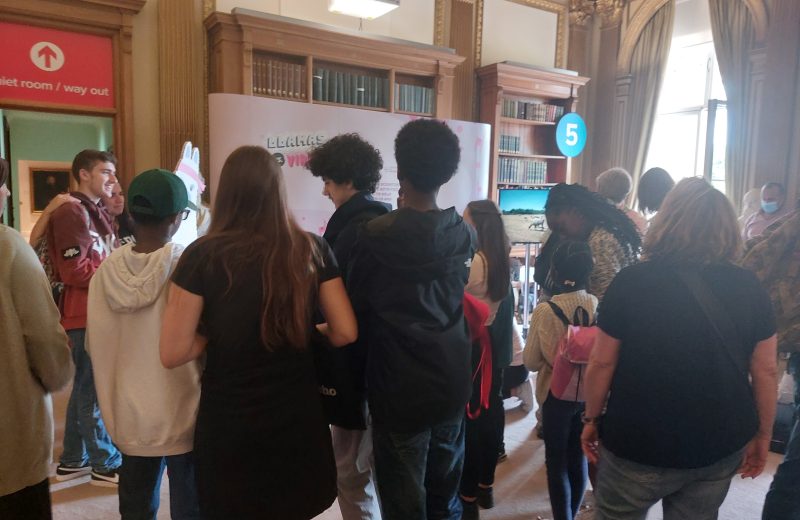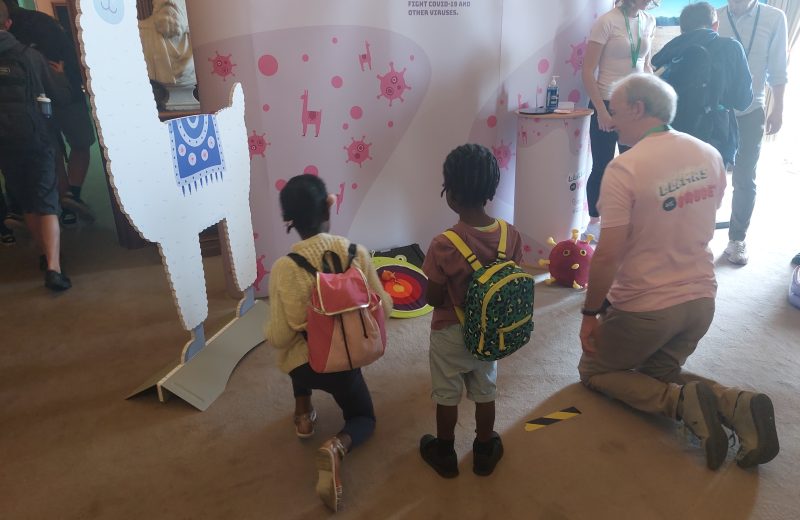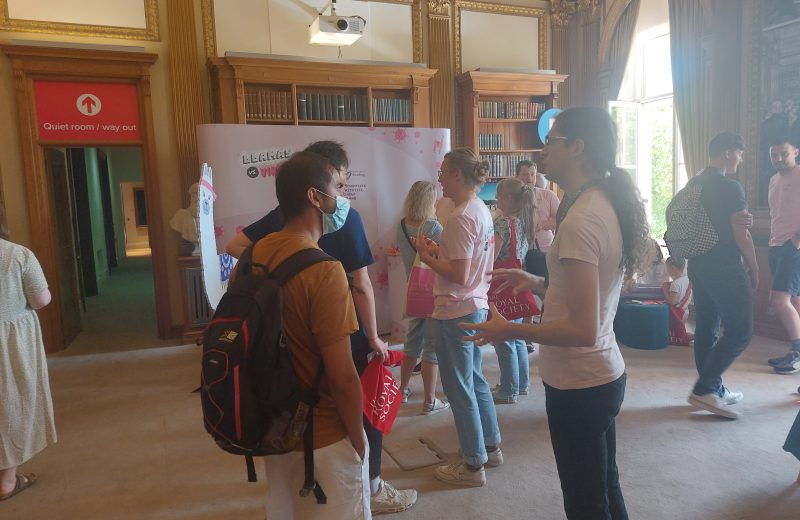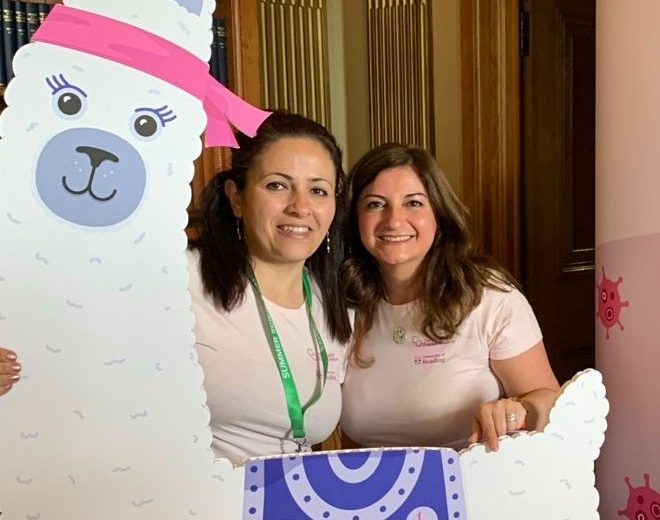Earlier this summer, we took part in the Royal Society Summer Science Exhibition with the University of Reading to explain how we are working with llamas including Fifi to help us fight viruses, such as Covid-19.
The Royal Society Summer Science Exhibition is an annual event offering a free interactive experience for anyone curious about the latest advances in science and technology. This year, over 5,700 public visitors and 33 school groups took part in the science careers session.


All of our staff had a great time introducing the general public to Fifi and nanobodies, and explaining the future potential of nanobody treatments. Nanobodies are engineered antibodies, made from a unique type of antibody produced by camelids.
Nanobodies are very useful to scientists as they are much smaller and easier to manipulate than normal antibodies, and are easier to grow in labs. Read more about our nanobodies research here.
Professor Gary Stephens, Nanobody project lead and Professor of Pharmacology at the University of Reading, said, “Being a part of the Royal Society Summer Exhibition was brilliant, I had some fascinating conversations with young and older members of the public. It is always great to see the enthusiasm the public has for science.”


Dr Georgina Girt, a post-doctoral researcher working with nanobodies and a creative contributor to the exhibition stand, said, “I was delighted to meet so many inquisitive young people. The exhibition was a fantastic way to be able to share with them both the Franklin’s exciting cutting-edge research, and the broad range of opportunities that are available in science.”
We are extremely grateful to all of our staff and those from the University of Reading who took part in the exhibition.